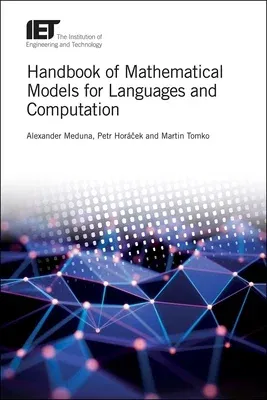Alexander Meduna
(Author)Handbook of Mathematical Models for Languages and ComputationHardcover, 10 January 2020

Qty
1
Turbo
Ships in 2 - 3 days
In Stock
Free Delivery
Cash on Delivery
15 Days
Free Returns
Secure Checkout

Part of Series
Computing and Networks
Print Length
760 pages
Language
English
Publisher
Institution of Engineering & Technology
Date Published
10 Jan 2020
ISBN-10
1785616595
ISBN-13
9781785616594
Description
Product Details
Book Format:
Hardcover
Country of Origin:
GB
Date Published:
10 January 2020
Dimensions:
23.88 x
16.26 x
4.32 cm
ISBN-10:
1785616595
ISBN-13:
9781785616594
Language:
English
Location:
Stevenage
Pages:
760
Publisher:
Series:
Weight:
1224.7 gm